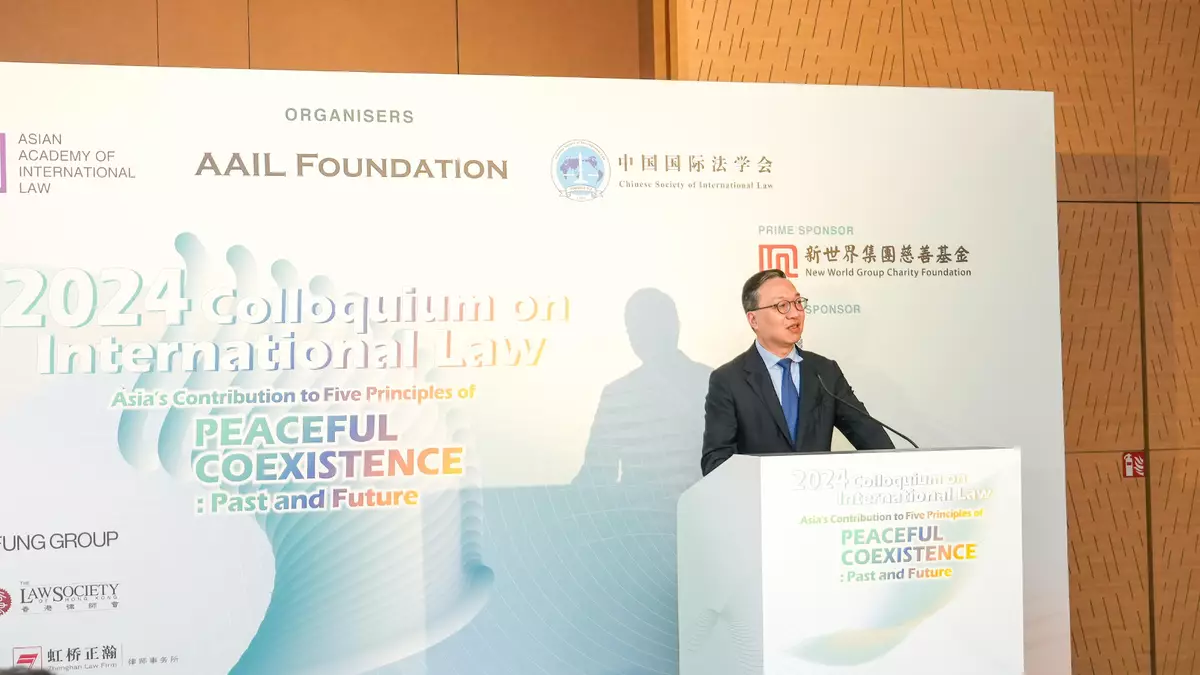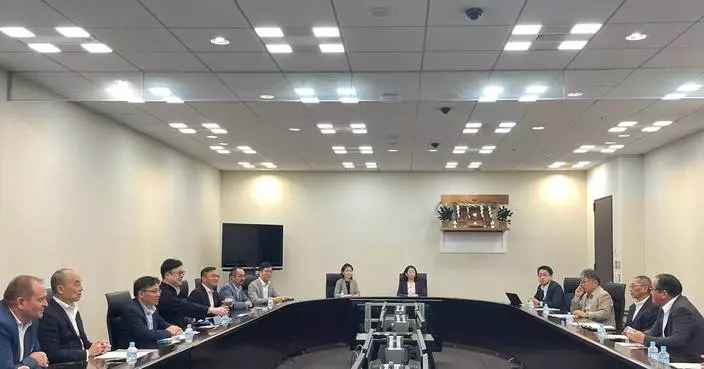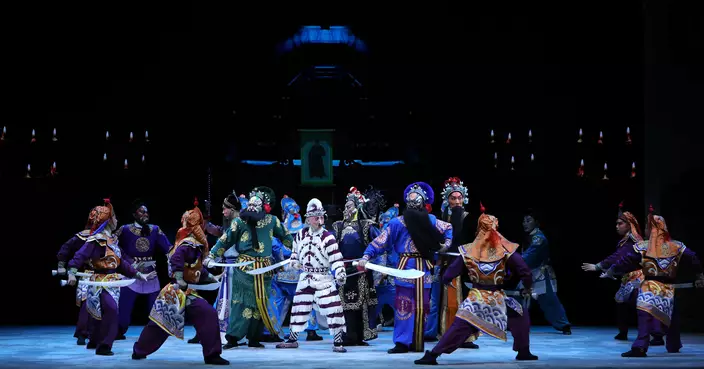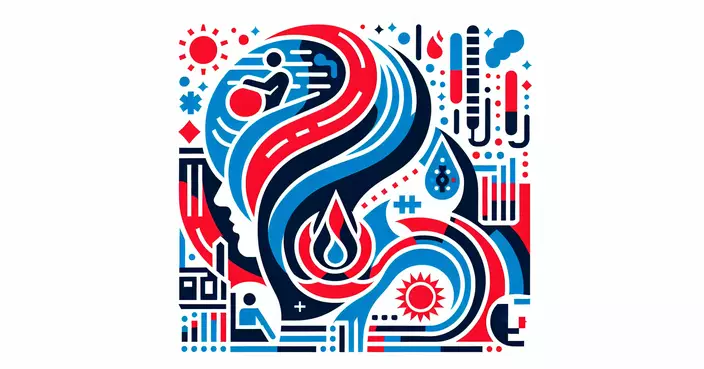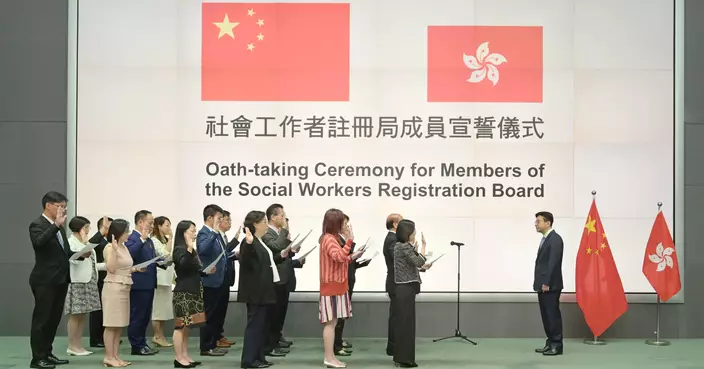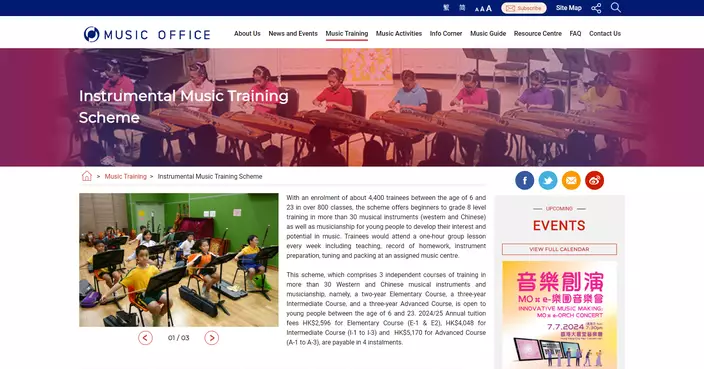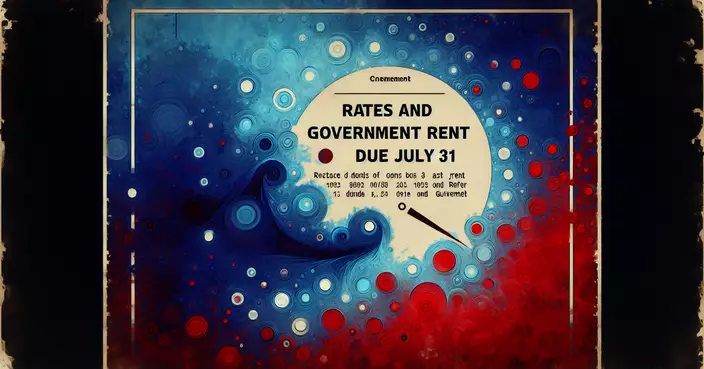Government enhances patriotic education efforts through collaboration with community groups, utilization of mainland resources, and military equipment exhibitions
Following is a question by the Hon Stanley Ng and a written reply by the Secretary for Constitutional and Mainland Affairs, Mr Erick Tsang Kwok-wai, in the Legislative Council today (July 3):
Question:
On April 29 this year, the Working Group on Patriotic Education held its first meeting and decided to set up four sub-groups (i.e. school education; local community; history, politics, economy and culture; and media publicity) to carry out patriotic education work. There are views that history, politics, economy and culture are significant aspects, and in particular, the history of the War of Resistance (the War) is an important resource for patriotic education. In this connection, will the Government inform this Council:
(1) of the number of patriotic education bases or organizations subvented by the Government in Hong Kong; the patriotic education activities held by these bases and organizations, and whether it has assessed the effectiveness of such activities;
(2) as it is learnt that many patriotic groups in the community have taken the initiative to organize various patriotic education activities and even established their own patriotic education centres, of the amount of resources allocated or to be allocated by the Government for collaboration with patriotic forces in the community including district organizations and patriotic trade unions, and whether it has formulated corresponding performance indicators; how the Government will make better use of patriotic forces in the community to promote patriotic education;
(3) as there are many patriotic education demonstration bases, as well as memorial halls and museums of the War on the Mainland, and there are also valuable resources for patriotic education such as the Opium War Museum in Humen, Dongguan and the Dongjiang Column Memorial Hall in Shenzhen, how the Government will make use of such resources to promote the development of patriotic education in Hong Kong (e.g. whether there are specific plans, cooperation directions and cooperation targets);
(4) as there are views that the numerous relics and heritages related to the history of the War in Hong Kong are important resources for patriotic education, whether the Government has formulated a list of these education resources; if so, whether it can provide the list to this Council; how the Government will make planning for, consolidate and utilize these education resources to promote patriotic education in Hong Kong; and
(5) whether the Government will consider organizing model exhibitions of the country's military equipment to revisit history while showcasing the country's increasing strength through the evolution and development of military equipment and China-made equipment used in major battles by the country and Hong Kong, so as to strengthen national and patriotic education; if so, of the details of the relevant plan; if not, the reasons for that?
Reply:
President,
Having consulted relevant bureaux and departments, the consolidated reply to the question raised by the Hon Stanley Ng is as follows:
Patriotic education is rich in content, covering many facets including the history, culture, traditions and values, and symbols and signs of our country. Currently, different policy bureaux and departments have set up various kinds of schemes to sponsor local community groups and non-governmental organisations (NGOs) to organise diversified promotional and publicity activities on different subjects, with a view to enhancing the sense of national identity and patriotism of the general public. For instance, the Community Participation Scheme set up under the Committee on the Promotion of Civic Education sponsors organisations for activities in promoting civic and national education; the Home and Youth Affairs Bureau and the Youth Development Commission also put in place various funding schemes, including the Funding Scheme for Youth Exchange in the Mainland and the Funding Scheme for Youth Internship in the Mainland, to provide funding support to NGOs in organising exchange activities or internship projects, so as to facilitate young people to visit the Mainland in person and learn and understand the country's development; the Constitutional and Mainland Affairs Bureau, through the Constitution and Basic Law Promotion Activity and Research Sponsorship Scheme, provides sponsorship to NGOs in the community to stage promotional activities in a diversified manner and conduct research on the Constitution, the Basic Law and the Hong Kong National Security Law; the Home Affairs Department (HAD) launched the three-year Clansmen Culture Promotion Scheme this March to provide funding support for clansmen associations to organise activities promoting hometown culture in order to foster the spirit of patriotism; the HAD will also hold a number of patriotic education celebratory activities with local organisations across 18 districts around the National Day; the Education Bureau (EDB) provides funding for non-profit making organisations to organise Mainland exchange activities for primary and secondary students through the Passing on the Torch: National Education Activity Series Subvention Scheme, enabling them to gain a deeper understanding of our country's development and cultivate patriotism; and the Culture, Sports and Tourism Bureau (CSTB) provides funding for the Sports Federation & Olympic Committee of Hong Kong, China to organise the Greater Bay Area Youth Sports Exchange Programme to strengthen exchanges and enhance the friendship between young athletes from Guangdong Province and Hong Kong through sports training and competitions. Relevant bureaux and departments will continue to co-operate with NGOs and community groups (including providing sponsorships for them to organise various kinds of national education related activities) to jointly promote national and patriotic education, and will review the effectiveness of such activities from time to time.
Organisations that wish to organise patriotic education related activities can use or rent suitable venues according to their needs. The HKSAR Government offers numerous premises, for example, the base for youth development and national education in Tsing Yi, which was converted from part of the community isolation facility, allows youth uniformed groups, schools and NGOs to hold flag raising and foot drill training, national education, and other youth development-related activities, etc. At the same time, through introducing the origin and special historical significance of community isolation facilities which were constructed under the Central Government's support, it allows youths to understand the care for Hong Kong by the Central Government, thus enhancing their sense of national identity. Whereas the Civic Education Resource Centre at Youth Square can, apart from having a collection of reference materials and teaching kits on civic education and youth development, be used for holding talks, training courses, film shows and seminars, etc. The thematic exhibition area and the permanent interactive exhibition area showcase interactive exhibits to promote core civic values, positive personal values and national knowledge. This year's exhibitions include Guangdong-Hong Kong-Macao Greater Bay Area Roving Exhibition and Rule of Law Exhibition.
In addition, there are currently various museum resources which can be effectively utilised for patriotic education. These include the Hong Kong Museum of History, the Hong Kong Palace Museum and the Hong Kong Science Museum, covering a wide range of themes, such as the history of the War of Resistance, Chinese history, Chinese culture, and the technology achievements of the country. By exploring the rich collections of these museums, citizens and students can gain a better understanding of the history and achievements of our country, with a view to strengthening their sense of national identity and enhancing patriotism. Of particular note is that the Hong Kong Museum of Coastal Defence (MCD) will be converted into the Hong Kong Museum of the War of Resistance and Coastal Defence in September this year, with focus on the history of the War of Resistance. Through public and educational activities, the museum aims to enhance patriotism among the public regarding the war and to pay tribute to its martyrs. The HKSAR Government will also revitalise and convert Block 58 of the former Whitfield Barracks in Kowloon Park into the Chinese Culture Experience Centre, and organise a variety of activities and workshops for promoting Chinese culture. Moreover, the Government will set up a museum to showcase the developments and achievements of our country, covering areas such as its history, politics, economic development and culture. We encourage schools and organisations to make good use of these resources, allowing students and citizens to gain comprehensive understanding of our country, its history, and the Chinese culture from different perspectives.
In addition to the resource centres and museum as mentioned above, groups and individuals in the community can also make use of local historical sites and landmarks to enrich the content and experiences of patriotic education, such as the Law's House (currently the Hong Kong Sha Tau Kok Anti-Japanese War Memorial Hall) at Sha Tau Kok that was used by the Hong Kong and Kowloon Independent Brigade of the East River Column as its base of operations and transportation checkpoint, as well as the Memorial Monument for Martyrs during World War II at Wu Kau Tang. In this regard, the Chinese Culture Promotion Office and the MCD under the Leisure and Cultural Services Department (LCSD) will join forces to design and organise guided tours by making use of the historic sites in association with the War of Resistance to boost the understanding and awareness of the war history among the public.
On utilising patriotic resources in the Mainland, as well as relics and heritages related to war history in Hong Kong, currently, relevant bureaux and departments have plans to commence work:
(a) In better utilising Mainland patriotic resources, the EDB has been collaborating with the education authorities of different Mainland provinces and municipalities to organise Mainland exchange programmes and study tours for students to enable them to gain first-hand experience of our country's development and achievements, thereby enhancing their sense of national identity. Mainland exchange programmes (MEPs) for students offer more than 100 000 exchange quotas every year, allowing every student to join at least one MEP in the respective primary and secondary stages. In addition, since the previous school year (2022/23 school year), EDB has launched Mainland study tours for the senior secondary subject of Citizenship and Social Development (CS). From the previous school year to July 2024, a total of around 95 000 senior secondary students have participated in the CS tours and very positive feedback has been received from teachers and students. The EDB will incorporate more visiting spots with "red resources" appropriately into the routes of MEPs and study tours, allowing students to experience the arduous struggles and patriotic sentiments of the revolutionary predecessors. Starting from the coming school year (2024/25 school year), the EDB will include visits to Sihang Warehouse Battle Memorial as part of MEPs and add a new route of CS tour to Jiangxi Province with visits to the source of Dongjiang water and the starting point of Long March, with a view to stepping up the promotion of patriotic education. The EDB also organises Mainland study activities for teachers. The tours include visits to valuable resources for patriotic education. For example, to commemorate the 90th anniversary of the Long March, EDB organised the Retracing the footsteps of revolutionary predecessors: from Yan'an to Xi'an – a study tour for Chinese history teachers in April this year to enhance teachers' understanding of the history of the Chinese Communist Party, the spirit and significance of the Long March. Besides, the MCD, after being converted into the Hong Kong Museum of the War of Resistance and Coastal Defence on September 3 this year, will regularly hold thematic exhibitions related to the War of Resistance in the Special Exhibition Gallery, and collaborate with cultural institutions and museums from the Mainland. The LCSD will jointly present a thematic exhibition with the Shenzhen Municipal Cultural Relics Bureau this September. The exhibition, to be jointly organised by the Hong Kong Museum of the War of Resistance and Coastal Defence, the Dongjiang Column Memorial, Shenzhen and the Memorial Hall of Chinese Cultural Celebrity Rescue, will introduce the joint resistance efforts of the East River Column in both Hong Kong and Shenzhen.
(b) In making good use of local relics and heritages related to war history, the Tourism Commission under the CSTB, in collaboration with the Agriculture, Fisheries and Conservation Department, has been taking forward the Enhancement of Hiking Trails - Phase II which covers hiking trails relating to war history, namely Lion Rock Historic Walk, Shing Mun War Relics Trail and Luk Keng War Relics Trail. Over the years, the MCD has organised various thematic lecture series related to the history of the War of Resistance, including, The War of Resistance against Japan and Hong Kong (September 2021), Women in Troubled Times: Hong Kong Women during the War of Resistance (October to December 2023), Popular Religion in Hong Kong during Wartime January to March 2024), Literature and Other Publications in Hong Kong during the War of Resistance (April to June 2024). Moreover, during the years of 2022/23 and 2023/24, a series of programmes titled Fight as One: Anti-Japanese Guerrillas were held, including thematic lectures, travelling exhibitions, and site visits, etc. These activities aimed to deepen the public's understanding on the history of the War of Resistance in Hong Kong and the Hong Kong and Kowloon Independent Brigade of the East River Column. We will consider working out a list on related relics for easy reference by schools and organisations.
Regarding the suggestion to organise exhibitions showcasing models of the country's military equipment, the Chinese People's Liberation Army (PLA) Hong Kong Garrison organises barracks open days around July 1 every year. Since 2021, the Hong Kong Garrison Exhibition Center was set up at Ngong Shuen Chau Barrack, displaying historical photos, antiques and models of the PLA's military equipment. Through the visits, relevant groups can deepen their understanding of the remarkable achievements of the country, the nation's military history and the work of the Hong Kong Garrison. Besides, within the MCD, there is currently a gallery dedicated to the Hong Kong Garrison. This exhibition introduces the responsibilities of the Garrison, which has been in charge of Hong Kong’s military facilities and defence since 1997, serving as a crucial cornerstone for maintaining Hong Kong's prosperity and stability. The exhibition is supplemented with historical photos, artifacts, models of PLA vessels (including landing ship, patrol boat, missile boat, and the aircraft carrier "Liaoning"), films, and interactive programmes. These displays help the public understand the evolution of national military equipment, thereby enhancing their national confidence and patriotic spirit. The MCD will explore the feasibility of collaborating with Mainland cultural institutions and museums to organise exhibitions showcasing the models of the country's military equipment, providing Hong Kong citizens with a deeper understanding of the evolutionary development of the country's defence capabilities.
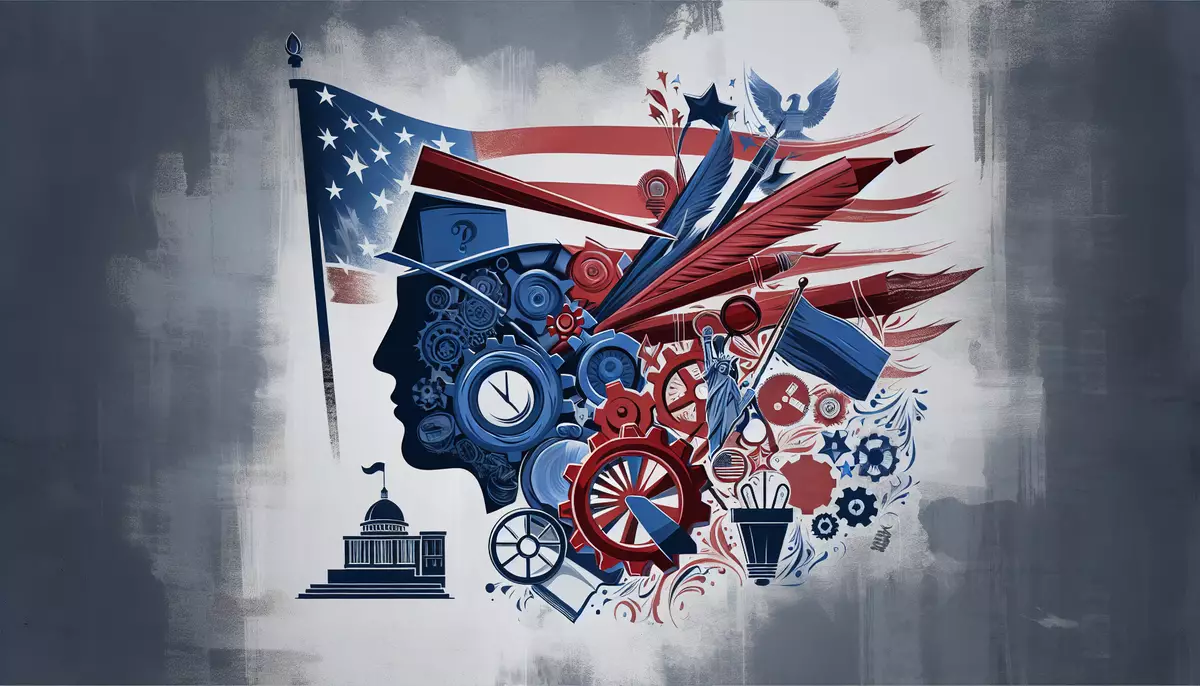
Source: AI-generated images



